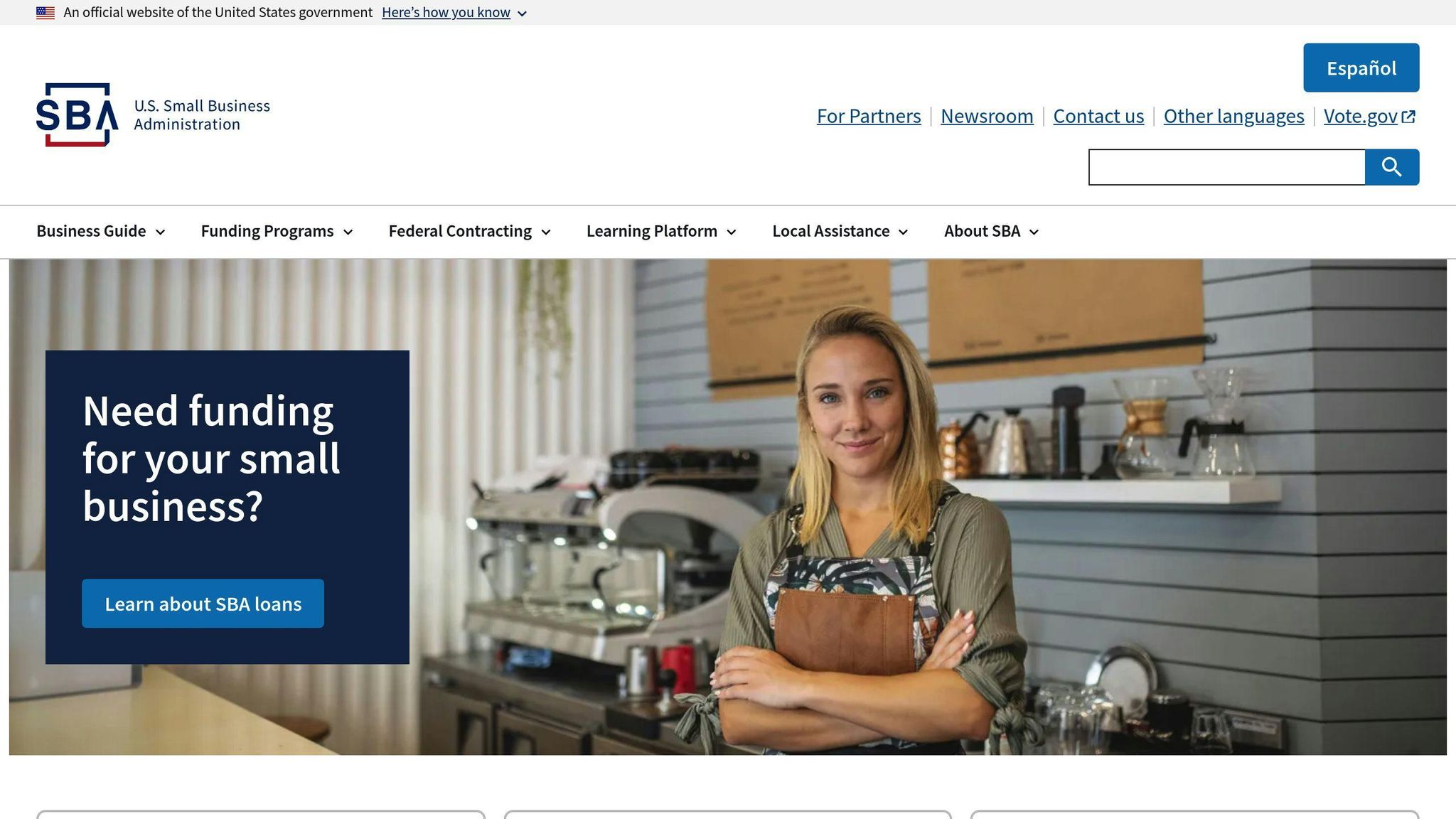- Purchase Price: Determined by EBITDA or SDE multiples (e.g., 2-3x for small businesses under $2M).
- Legal & Financial Fees: 1-5% of the purchase price for due diligence and attorneys.
- Working Capital: 10-15% of the purchase price to cover daily operations.
- Closing Costs: 3-5% of the purchase price for taxes, insurance, and licensing.
- Upgrades/Repairs: Varies by business condition for improvements.
For example, buying a $3M business may require $3.45M-$3.6M in total, factoring in additional costs like working capital and closing fees. Financing options include SBA loans (10-25% down payment) and seller financing to lower upfront costs. Proper planning ensures you’re ready for both expected and unexpected expenses.
Detailed Breakdown of Small Business Purchase Costs
Cost of Buying the Business Itself
The purchase price for a small business is often determined using financial metrics like EBITDA or SDE multiples. These multiples vary depending on the size of the business:
| Business Size | Valuation Method | Typical Multiple Range | Example Value |
|---|---|---|---|
| Small (<$2M) | SDE Multiple | 2-3x | $500K-$1.5M |
| Medium ($2M-$5M) | EBITDA Multiple | 3-4x | $2M-$4M |
| Large ($5M+) | EBITDA Multiple | 4-5x+ | $5M+ |
Fees for Legal and Financial Reviews
Expect to spend 1-3% of the purchase price on due diligence. These costs cover legal, financial, and compliance reviews. For instance, if you're purchasing a $2 million business, these fees could range from $20,000 to $60,000 [3].
Funds Needed for Day-to-Day Operations
It's important to set aside enough working capital for the first 3-6 months. This includes covering expenses like inventory, payroll, and other operating costs. Seasonal businesses might require adjustments to this estimate. Don't forget to account for any finalizing expenses or potential investments after the purchase.
Costs for Finalizing the Purchase
Closing costs typically range from 3-5% of the purchase price. These include:
- Legal filing and business registration fees
- Transfer taxes
- Insurance policies
- Licensing fees
- Administrative expenses
Investments in Upgrades or Repairs
After the purchase, you might need to invest in areas like facility upgrades, compliance updates, or technology improvements. These costs are important for enhancing the business's performance and should be included in your overall budget.
Understanding these expenses is crucial before moving on to explore financing options for your purchase.
How to Finance a Small Business Purchase
Using SBA Loans to Buy a Business

SBA 7(a) loans are a common option for financing small business purchases, offering up to $5 million with favorable terms. Here's a quick overview [2]:
| Feature | Details |
|---|---|
| Down Payment | 10-25% of purchase price |
| Credit Score | Minimum FICO 690 |
| Interest Rates | Lower than traditional bank loans |
| Repayment Terms | Up to 25 years |
| Business Requirements | 2+ years operating history |
Seller Financing and Equity Agreements
Seller financing is another route that can lower upfront costs for buyers. For instance, pairing a 5% seller financing agreement with an SBA loan could reduce your required equity injection to just 5% [1].
Key details about seller financing:
- Interest rates are usually higher than SBA loans.
- Repayment terms are shorter compared to SBA loans.
- Terms are negotiable and often depend on the business's performance.
Other Ways to Fund a Purchase
Combining various financing methods can help create a balanced funding plan. For example, in a $3 million business purchase, the breakdown might look like this:
| Funding Source | Percentage | Amount |
|---|---|---|
| SBA Loan | 80% | $2.4M |
| Equity Sources | 20% | $600K |
Private equity is an option for larger acquisitions but often requires giving up a significant level of control. Online lenders, while quicker, tend to have higher interest rates and are better suited for buyers with fair credit [2][6].
For those entering partnerships, strategic investors can bring both funding and industry expertise. Structuring the deal to ensure sufficient cash flow while meeting payment obligations is crucial for long-term success.
With these financing strategies in mind, the next step is to see how they play out in actual business purchases.
Examples of Small Business Purchase Costs
Cost Breakdown for a $3 Million Business
When buying a $3 million business, you'll face more than just the purchase price. Here's a look at the typical costs involved:
| Cost Category | Amount | Details |
|---|---|---|
| Equity Injection | $300,000 | Minimum 10% down payment required. |
| SBA Loan | $2.4M | Covers 80% of the purchase price. |
| Due Diligence | $15,000-30,000 | Legal and financial reviews. |
| Working Capital | $150,000-300,000 | Funds for daily operations. |
| Closing Costs | $45,000 | Roughly 1.5% of the purchase price. |
Altogether, the total investment often exceeds the purchase price by 15-20%. This means you'll need around $3.45-3.6 million in total capital.
Cost Breakdown for a $10 Million Business
Acquiring a $10 million business involves more complex financial planning. Here's how the costs might look:
| Cost Category | Amount | Details |
|---|---|---|
| Equity Injection | $1M-2M | Includes down payment and financing. |
| Due Diligence | $50,000-100,000 | Thorough legal and financial reviews. |
| Working Capital | $500,000-1M | Operational buffer for expenses. |
| Closing Costs | $150,000 | About 1.5% of the purchase price. |
Larger acquisitions often come with higher working capital needs due to increased payroll, inventory, and operational expenses. Additionally, SBA loans may not cover the entire amount, so buyers often turn to multiple funding sources.
It's wise to budget for unexpected costs, such as equipment repairs, additional marketing efforts, or compliance-related expenses. In some industries, regulatory requirements can add significant costs [1][3].
These breakdowns provide a clearer picture of the total financial commitment, helping you plan effectively and avoid surprises during or after the acquisition process. Keep in mind that factors like industry-specific risks or unforeseen expenses can further impact your budget.
sbb-itb-cce425d
Other Factors to Think About When Buying a Business
Costs for Licenses and Compliance
When buying a business, don’t overlook the expenses tied to permits, certifications, and other compliance requirements. These can add a noticeable amount to your overall investment and vary depending on the industry.
Here’s a quick snapshot of common regulatory costs across industries:
| Industry | Common Compliance Requirements | Estimated Annual Costs |
|---|---|---|
| Food Service | Health permits, food handler certifications, liquor licenses | $5,000 - $15,000 |
| Healthcare | HIPAA compliance, medical licenses, facility certifications | $20,000 - $50,000 |
| Manufacturing | Environmental permits, safety certifications, equipment inspections | $15,000 - $40,000 |
| Retail | Sales tax permits, merchant licenses, point-of-sale system fees | $3,000 - $10,000 |
These costs can vary widely depending on your location and the specific requirements of the business. While compliance costs are often predictable, unexpected challenges related to them can strain your budget if not properly accounted for.
Planning for Risks and Unexpected Costs
It’s wise to set aside 10-20% of the purchase price as a contingency fund to handle unforeseen expenses during your first year of ownership.
Here are some common unexpected costs you might encounter:
| Risk Category | Potential Costs |
|---|---|
| Equipment Failures | Emergency repairs, replacements |
| Legal Issues | Contract disputes, compliance violations |
| Market Changes | Additional marketing, inventory adjustments |
| Property Issues | Maintenance, repairs, upgrades |
To manage these risks effectively, consider the following steps:
- Insurance Coverage: Ensure you have comprehensive policies for property, liability, and business interruption.
- Legal Protection: Use contracts with clear terms, including warranties and liability clauses.
- Professional Support: Work with experienced legal, financial, and industry advisors.
Each industry comes with its own challenges. For instance, manufacturing businesses may need larger reserves for equipment-related issues, while service-based businesses might focus more on liability protection.
Related video from YouTube
Conclusion: Key Points About Small Business Purchase Costs
Buying a small business comes with expenses that go beyond the purchase price - typically adding 15-25% more to your initial investment. These extra costs often include legal fees, funds for daily operations, compliance needs, and contingency reserves. Recognizing these expenses is just the beginning; effective financial planning is what truly ensures a smooth acquisition process.
Research shows that businesses with detailed cost planning and financial reserves are more likely to thrive during their first year. Some key financial planning steps to consider are:
- Exploring various funding options
- Budgeting for daily operations and seasonal changes
- Allocating funds for future growth opportunities
- Developing strong risk management strategies
A successful acquisition requires balancing upfront costs with ongoing operational expenses. By understanding the full scope of costs and setting aside the right financial reserves, buyers can set the stage for steady business growth and ownership.
Approaching acquisitions with a thorough financial plan not only helps avoid common mistakes but also builds confidence. The real key to success is preparing for both expected and unexpected costs through smart planning and maintaining a financial cushion.
FAQs
Here are answers to common questions about the expenses involved in purchasing a small business:
What costs come with buying a business?
When buying a business, the expenses go beyond just the purchase price. You’ll typically need to budget an additional 15-25% of the total investment for things like down payments (usually 10-30%), legal and financial reviews, working capital, and closing costs. The exact figures depend on factors like the business's industry, size, and location.
How much money do you need to buy a business?
The total amount varies based on the size and type of business. Most acquisitions require a down payment of 10-30% of the purchase price [1][2]. For instance, purchasing a $4 million business typically means putting down $400,000 (10%) upfront, plus covering additional costs for operations and professional services.
The SBA 7(a) loan program can help reduce the initial cash needed, offering down payments as low as 10% [4][5]. These loans come with competitive interest rates and flexible repayment terms.
"Financial planning is crucial to ensure that all costs are accounted for and that the buyer has sufficient funds to cover the acquisition and ongoing operations" [1][2].
Planning for these expenses is key to building a realistic budget and securing the right financing. By understanding all the costs involved, buyers can approach the process with greater confidence and clarity.

